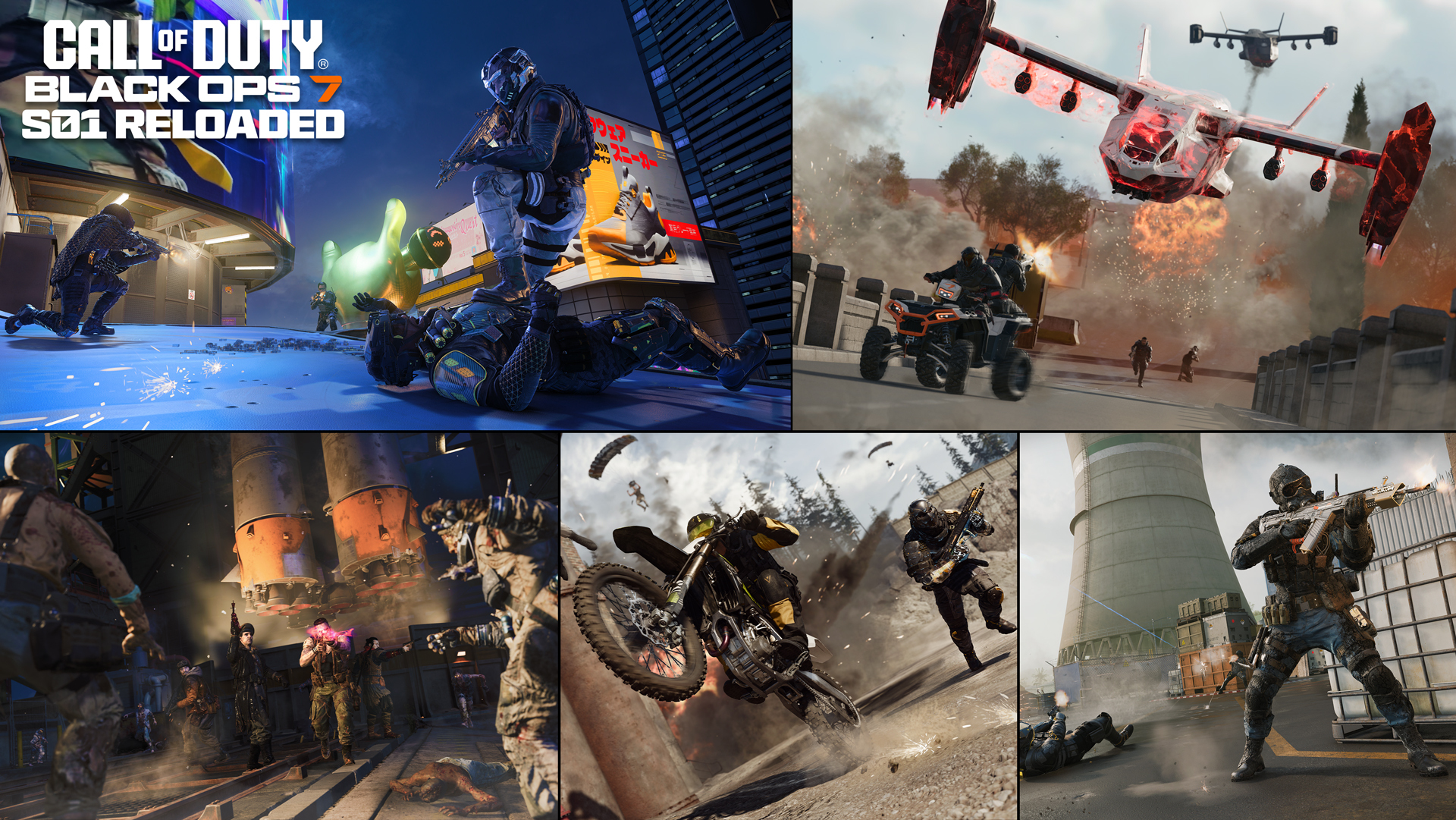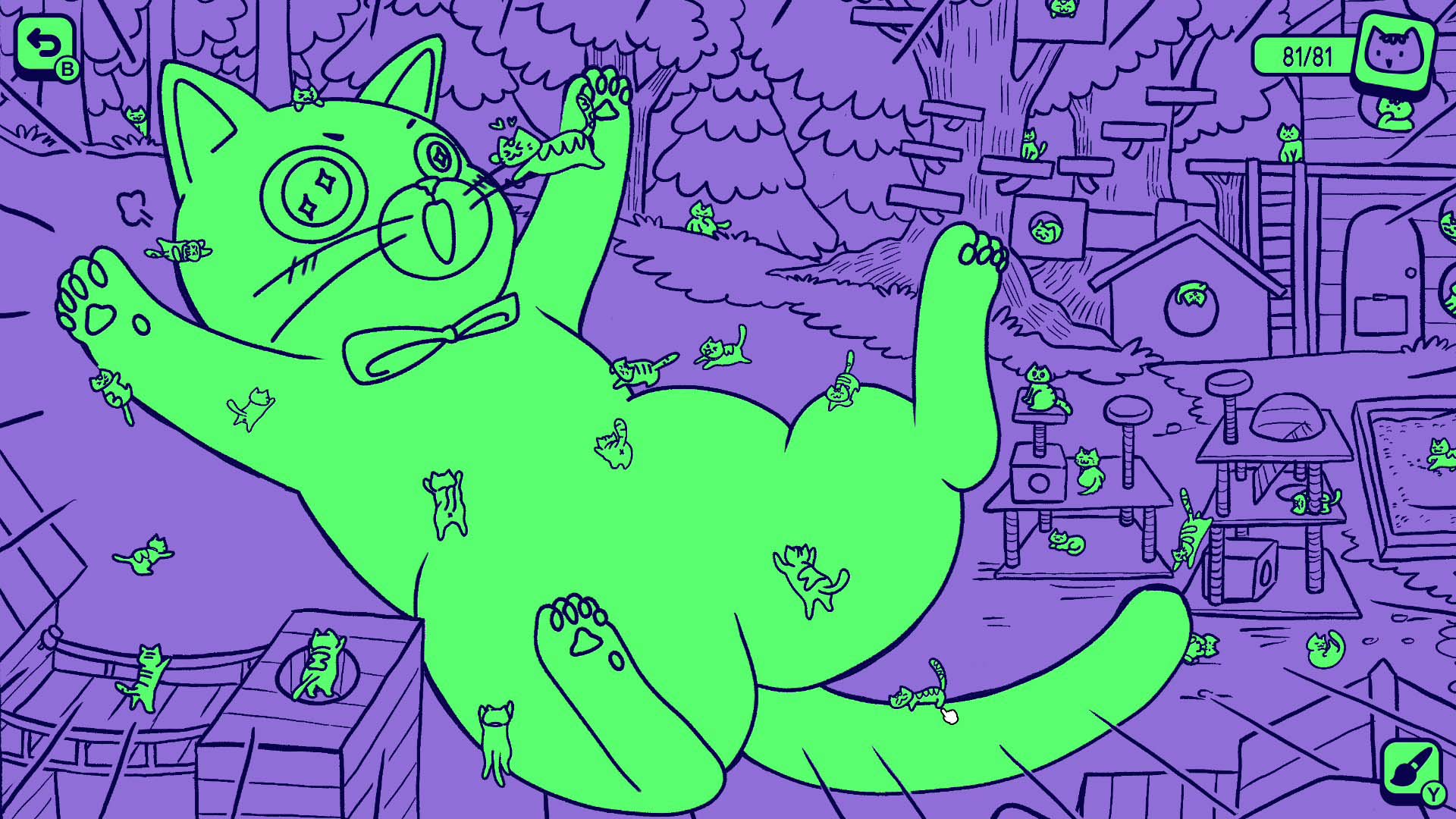Have you ever wondered what it would be like to work as a developer? Coming into the office to a diverse assortment of characters and problems to address every day? The world of software and game development is a wild ride of stress, elation, and compromises. TVGB got to sit down with Don Westendorp and Del Sharratt, the lead developers of dev_hell, an upcoming rogue-like deck builder set within a software studio environment. We talked about the game, its inspiration, and some juicy tidbits of information for this social commentary game.
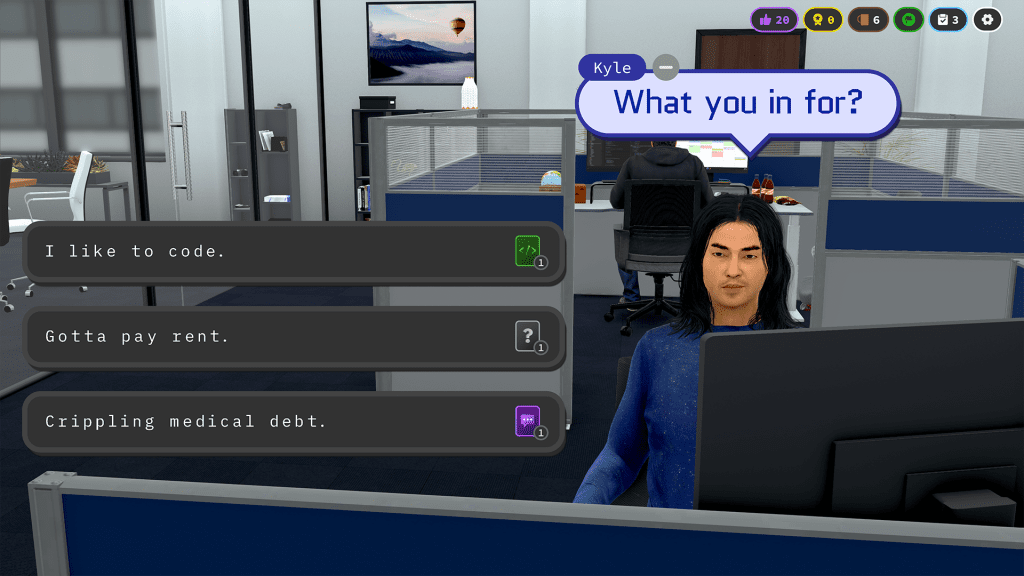
TVGB: This is your first game as Unhinged? Is this the game that you all came together for or did you all come together first and then come up with this idea?
Don: This is actually the second version of dev_hell. We started working together in 2019. We met at a job, and I was already working on the first version of dev_hell. I mentioned to Del that I was making a game and they’re like, “Oh, I wanted to do that,” and then it kind of rolled out from there. But the first version was quite a bit different. And then COVID happened and we wound up shelving it because we didn’t really want to make a working-from-home version of what we were doing. And then we worked on a different project for a little bit and then it got too big and then we’re like, “Let’s take all this stuff we built and build something with it,” and we came back around with this.
TVGB: So this is a game that had a couple of permutations, would you say the core essence of it is still the same?
Don: Oh yeah, the first version of the game was gonna be a little bit more team manage-y. There was more emphasis on your teammates and each teammate was represented by a deck and a big part of it was managing what cards they had in their decks, as well as what was in your deck. Everybody would just play a card and that would create a situation and then you would play cards against that situation and it would accomplish very similar things to what you’ve seen in the demo. It was still about getting code done and making sure that your reputation didn’t get hurt. So, instead of those cards just being situations, they would be your teammates’ cards.
TVGB: So it was almost like a Pokémon or something like Poker?
Don: Yeah, the goal was to mimic my experience in the industry, which is like…trying to manipulate everybody, and they’re just doing their jobs properly *(laughs)*. The tagline was, “Drag your team kicking and screaming to success”, or something like that.
TVGB: (laughs) Oh, that sounds painfully accurate. Unfortunately.
Don: And there’s still a lot of that in the current game, but it is a lot more streamlined and a lot more character driven, at first it was going to be more RNG driven, and not much of a story, but then, we really wanted to tell the story more. Inscription plus Griftlands is our elevator pitch. So, you have all of that fun immersion of Inscription. But the horror is more theoretical than literal.
TVGB: And so you still use those inspirations as your guiding light?
Don: Yeah, we really wanted to be able to tell a lot more of a story with it and the story of how you approach development is part of your build when you’re a developer. Certain characters will provide certain things in your runs. A lot more of that will be in the next phase of the demo, too. You get specific code rewards from Kyle and you get specific influence rewards from Lydia. So, the way you interact with the team will also inform what you’re capable of doing. Like in real life, if you work at a job and you’re more friends with the project manager instead of the product manager, the way that job plays out is different.
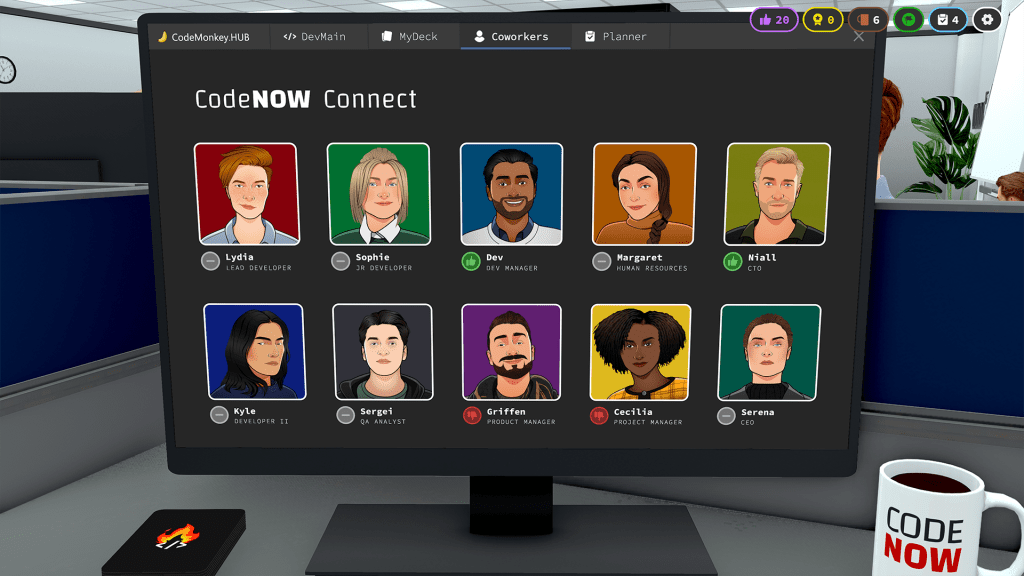
TVGB: I see, that’s really interesting! You guys are really leaning into the…social commentary on Dev work, right? Is there a specific experience that you are leaning into or a certain stereotype per se?
Don: The main message we’re trying to say is that coding is the easiest part of the job. The thing we want to illustrate is that being a developer is about juggling resources and all of these different things at the same time. There are very few actual coding jobs where you just go in and code and then go home. The goal is to really show the struggle of having to say, “Oh man, I’m gonna have to make a lot of compromises on my values to get this code done today.” (laughs)
TVGB: I imagine, as developers, making a game about developing may have evoked some ironic moments. Have you had any weird moments like that during development that you’d like to share?
Don: Oh man, so many. We can’t talk about people per se because this is entirely a work of fiction and anything is a coincidence, of course. Um, I mean, chair physics was fun, just getting the chairs to lean back when people lean back in the chairs. I’m like, this is the most mundane thing I’ve ever had to make. It is so ridiculous.
TVGB: I can imagine the situation of, oh, I’m coding a problem. I’m trying to code this feature about coding and then you have an out-of-body experience where you realize what it is you’re doing, like how often do those kinds of moments happen?
Don: I’ve just kind of lived in that moment the entire time. We’ve definitely had a lot of…we’re having the same kind of development problems developers have about developing development. Like, “Oh man, we miscommunicated about the miscommunication feature.”
Del: I think, granted this is like, partially the responsibility of developers on a team but just like…navigating how to handle priorities at all. You know, I think that’s something that we all dealt with at our jobs. And it’s funny, like, just how much of a problem that’s been doing game development.
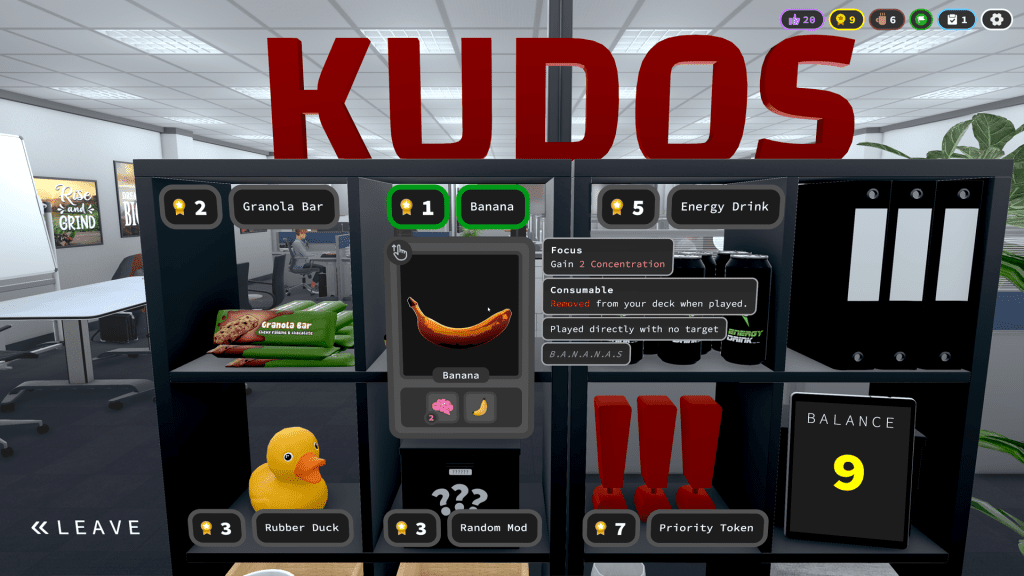
TVGB: For people that haven’t been a part of game dev, or maybe they are enthusiasts and know a little but no experience, what type of message would you want to give people that have no personal experience with that environment?
Del: We definitely spent a lot of time trying to figure out how we make this game something that is accessible, approachable, and also interesting for people regardless of how much you know about development. I think at this point, especially culturally right now, everyone knows something about big tech and probably has…mixed feelings about the kind of things that are being made right now, and how that’s impacting everyone’s lives and that is something the commentary part of our game touches on a lot. And you explore that more and more as the game goes on, like, what is the nature of the things that you’re building, and what are the goals of your company?
Don: And just like how the people that are making it are just people, there’s some mundane to this evil machine that’s just consuming the world and ruining the fabric of society. But when it comes down to it, like [one of our characters] just wants to go home and play video games, but during the day, he’s busy…destroying personal privacy. You get a really good firsthand look into that while also still having fun.
TVGB: I’m sure you have worked on other projects in the past. Are there any games [you have developed] that were kind of similar to this or is this your first?
Don: I’ve tried to make games several times in my life. We both went to video game college basically, which is how we wound up being like, “Hey, we could probably do this together because we’re both video game college dropout turn software devs that have a strong background in art and also picked up programming later in life and got good at it.” So, we had this huge skill set to draw from. But, the first big game project I tried to work on like 10 years ago was more of a MOBA Roguelike, kind of like League of Legends. Single-player League is one of the biggest things I’d love to make someday because I really like the mechanics of League of Legends. But I don’t like the people of League of Legends.
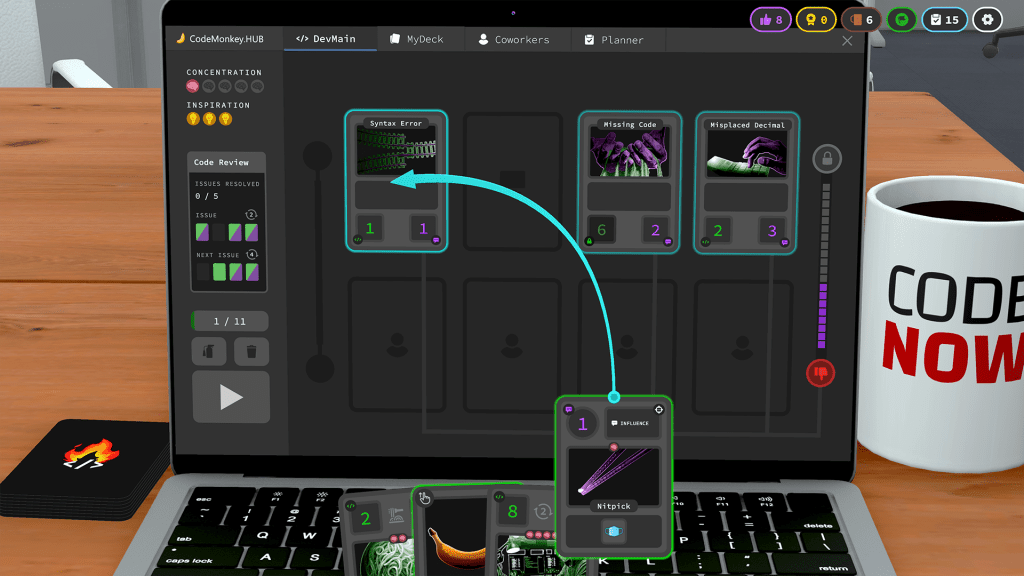
TVGB: It has been interesting watching Roguelikes evolve. With games like Hades 2 and Slay the Spire 2, story has become a more prevalent aspect in these games and I’m excited to see the genre become more nuanced.
Don: Yeah, for me, the thing I don’t like about most games is if I can find an ideal way to play it. Everybody is info-maxing everything now. But, if I can just put the player in a bespoke situation where they generally have to think it through every single time they play…that feels a lot better to me than being able to look up a guide that tells me the exact build order that I should always follow. I like it personally, too, because I have that tendency to want to Min/Max, and Roguelikes let you do that, but you still have to do it within the situation you’re in and you can’t just always get the same build every single time. Our game has over 250 player cards currently designed and your final deck [is going to be] somewhere between 25 to 30 cards. So, there’s gonna be a lot of variants in there. Like…did you get spaghettification in the demo?
TVGB: I saw it, and I didn’t take it because I was too scared. (laughs)
Don: That’s one of the biggest synergies that’s in the demo, but there’s a lot of synergies that are in the final game, as well!
TVGB: Are there any plans that you would like to share about dev_hell?
Don: The biggest thing we wanna do is have a big demo. We are getting the final touches on Act Two. It’s gonna be a five-act game that’s structured like Griftlands. There’s a whole relic system like Slay the Spire. You can only have four relics and [these relics come in the form of]…desk items like company swag and they all have various effects. They’re a lot more active and interactive than most relic systems that are, like, every third attack, you do extra damage. Or we have one that you can slot a card into it and it will do stuff based on what card you give it.
It is our goal to have a lot of content in the demo so that a player will know exactly what they’re getting because a big part of what this game is…not gonna be appealing to everyone. So, we wanna make sure that the people can know if they actually like the game before they purchase it. I guess in terms of interesting things coming up, it is just gonna be a simple single-price game. It’s exactly what you’d expect from a Roguelike deck builder. You pay once, that’s it. You’re done. We do have plans to put in cosmetics, but it would be like Hades where it’s all just in-game [currency]. And this isn’t for launch but plans to decorate the office for Halloween kind of stuff.
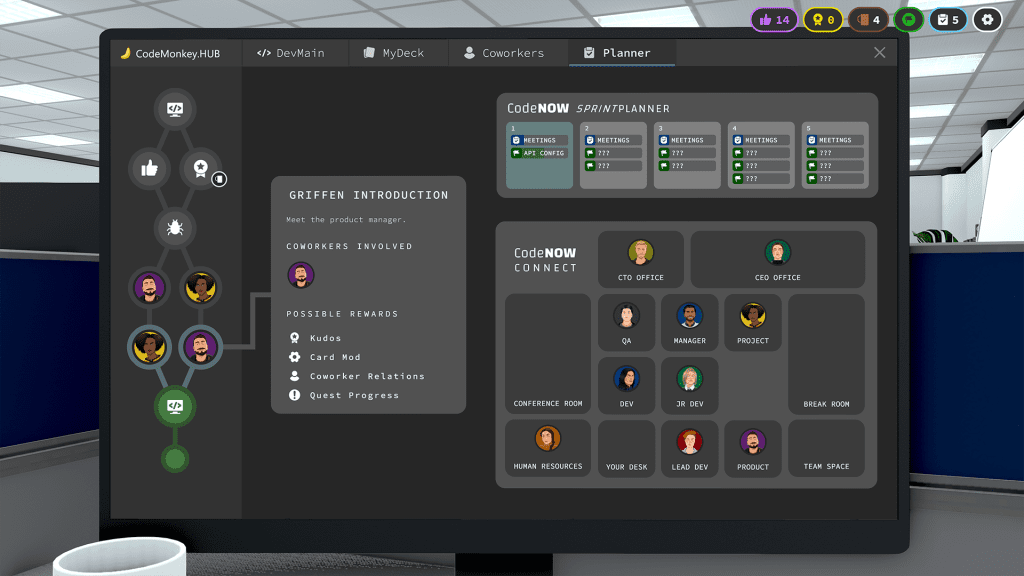
TVGB: Would each of you be able to tell me what has been your favorite part of development? What was the moment that you’re kind of proud of or something that maybe no one will ever see or ever understand, but it means something to you.
Del: I’ve really been driving the story in the game and that has been probably my biggest contribution and I think that, as we’ve developed the story…have you ever seen the gif of the mind explosion guy, and it’s like the galaxy is floating? I feel like the further that we went with the story, the more interesting ways we’ve been able to scope it out and give it even more and more dramatic implications. Obviously, I can’t give any spoilers for the story. But I think by the time people get to the end of the game, it’ll be like, oh man…that’s probably been the best part for me.
TVGB: I love to hear it. We’ve been getting a lot of great stories and video games lately. So, I look forward to adding this one to the shelf.
Don: For me…just getting the “game feel” really dialed in and the animations and stuff has been a lot of fun for me. We still have a ways to go but making the particle system was a lot of fun, how there’s all these little trails and explosions everywhere. Getting the UI to be the way it is has been a lot of fun. We’re using a plug-in, but we’ve modified it a lot to get the screens in the world and everything functioning so it is seamless when you sit down and now you’re playing the game.
We’ve also structured the game’s [story] so that none of the characters in the game actually know they’re in a card game. It’s just the expression of what you’re doing, but none of them are ever like, “Here’s a card to do this thing or that thing.”
TVGB: Right, right. It is all within the universe.
Don: Yeah, the big thing we’ve been relentless about is you’re always in first person, you’re not playing a character, you’re playing yourself as a software developer. And there has been a lot of consideration around exactly how we do that and make sure that we’re bringing immersion to the experience. But we have to juggle this whole idea of, like, we don’t want you to actually feel like you’re just at a job and not having fun. Like Power Wash Simulator, how do we make sure that it’s fun but still representative of what the job is?
TVGB: How you would describe dev_hell in summary form, and it can be as outlandish or as basic as you want it to sound.
Del: (laughs) Basic summary is a first-person roguelike deck builder set against the backdrop of the tech industry. You play as a newly hired dev at a tech start-up with “questionable intentions”. Throughout each run, you must build a deck to complete coding challenges, defending your reputation to avoid getting fired. But if you get deeper and deeper into the game, you’ll learn more and more about the shady nature of the work and the company’s secret agendas.
Don: We want to give you a window into this…like, this is what’s happening every day that’s destroying our society. (laughs) It’s all about experiencing the industry from first person and experiencing the challenges that you have to deal with, in a gamified way. So that you can see how it is and how you would do it differently. Then also be able to delve into this interesting cast of characters and see what their personal relationships are like, the conflicts they’re having, and whose side you wanna take because you can’t make everybody happy. Certain characters are going to not like you, it is very realistic in that way. You should be coming out of every run like, “Wow, I had to do some really weird stuff to make it through that time,” and there should never be a, “I did it and I know exactly how to do it every single time and I’ll be able to repeat that and win,” because you’re always gonna have to make some really weird decisions.
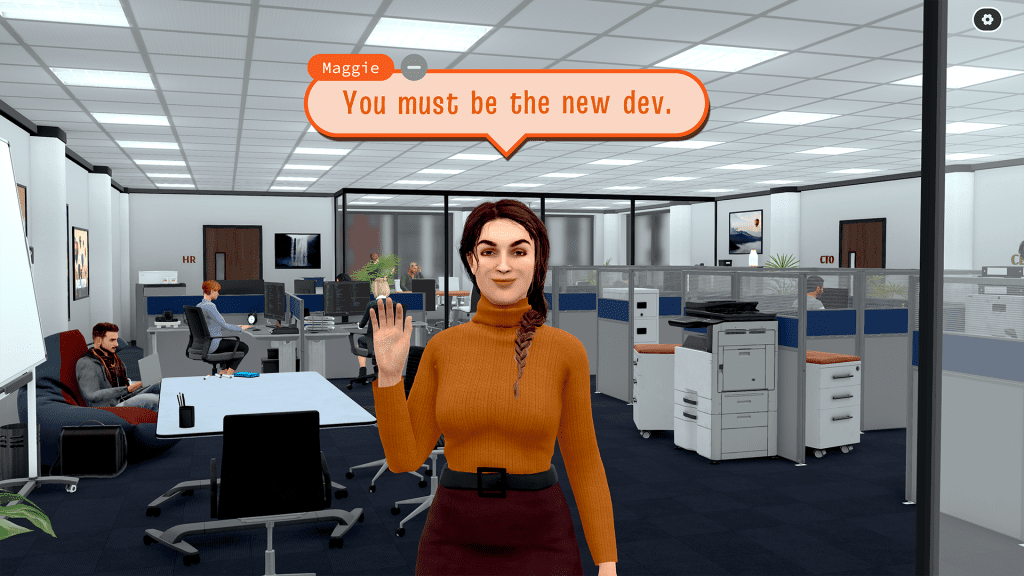
Special thanks to Del and Don for their time. A free demo for dev_hell is currently available exclusively on Steam to try and experience the game for yourself! dev_hell is planned to release in 2024.


